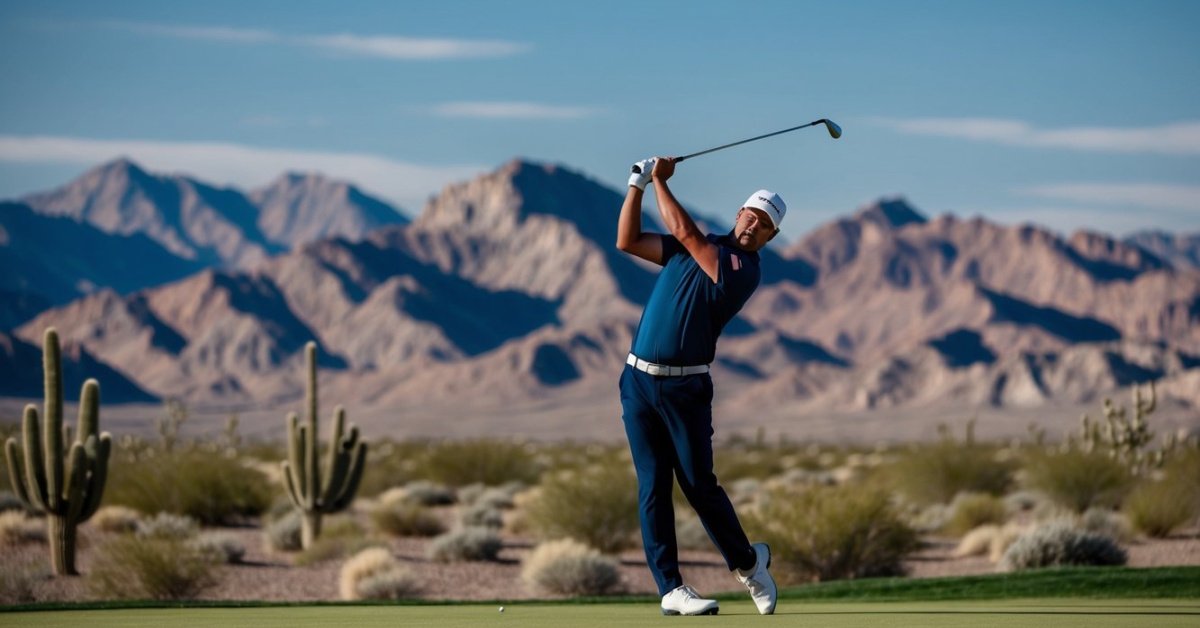Ever wondered what’s inside the golf bags of the pros? It’s not just about the clubs. The golf balls they choose play a pivotal role in their game. You might be surprised to find out that the best golfers are pretty particular about the balls they use.
The Importance of Golf Balls for Professional Golfers
As a seasoned low handicapper, you’re well aware that every detail counts when you’re aiming to shave strokes off your game. It turns out, the pros think likewise, especially about the golf balls they use. It’s not merely a matter of personal preference or superstition; the golf ball is a pivotal piece of equipment that can significantly influence a player’s performance on the course.
Pro golfers choose their balls with extreme care, seeking out those that provide the perfect balance between distance, control, and feel. The construction of a golf ball, from its core to the number of layers and even the dimple pattern on the surface, affects its flight, spin, and reaction upon landing. For a professional player, a ball that complements their swing speed and playing style can mean the edge needed to top leaderboards.
Here’s a simplified rundown of what these elite players consider:
- Spin: Tailoring ball choice to control spin can help with accuracy, especially in short games.
- Distance: High-performing balls are optimized for maximum distance off the tee.
- Feel: A softer ball can enhance feel, allowing for better control and finesse around the greens.
- Durability: Pros need a ball that can withstand the rigors of high-velocity impacts.
Models like the Titleist Pro V1 and Pro V1x are amongst the most popular on tours, offering a blend of distance, consistent flight, and a soft feel that appeals to the pros. However, every golfer in the circuit has their particular favorites, sometimes influenced by sponsorship agreements but often based on the ball’s performance metrics and how it meshes with their game.
Testing and familiarity with different ball types in various conditions is essential for any pro. They often spend hours with their coaches and equipment specialists, analyzing how weather, course conditions, and ball characteristics affect their shots.
As you develop your game, consider the ball as part of your arsenal. Experiment with different types and brands to find the one that best suits your style. Remember, what works for the pros may inspire you, but the ultimate goal is to find “your” ball—the one that you’ll trust to deliver under pressure, just like your idols do.
Factors Considered by Golf Pros when Choosing Golf Balls
As an avid golfer with an impressive handicap, you’re certainly aware that selecting the right golf ball is a critical decision for any pro. Performance is the name of the game, and pros look at several key factors when picking their golf balls.
Spin is a major consideration. Golf pros require a ball that provides the right amount of spin for their playing style. Too much spin could lead to loss of distance or control, while too little might prevent them from shaping shots or stopping the ball quickly on greens. Professionals often prefer balls with a high spin around the greens for improved precision.
« Should I Use Soft Golf Balls? Pros & Cons Tailored to Your Game
Where Golf Ball Should Be in Stance: Master Your Wedge Shots »
Distance is equally important as spin. You’ve probably noticed most pros go for a ball that offers maximum distance off the tee without compromising the ability to play strategic golf. After all, longer drives set up easier approach shots, which can make a significant difference on the scorecard.
Then there’s the feel of the golf ball. Pros want a ball that feels right on impact and provides feedback that’s in tune with their swing. A ball that’s too soft or too firm could disrupt their rhythm. They often go for a ball with a soft feel on short game shots yet a solid response on full-swing shots.
Durability can’t be ignored either. High-performing balls that withstand the rigor of multiple rounds are of utmost importance. Nobody wants to be changing their game ball too frequently due to wear and tear.
Despite these commonalities, there’s an element of personal preference that plays into each golfer’s choice. Some pros might put a premium on wind resistance; others might look for specific performance in wet conditions.
Testing various brands and models under different conditions enables pros to determine which golf ball complements their game best. It might take some time and experimentation, but when you’ve found the right one, the confidence it brings to your game is unparalleled. Remember, the ideal golf ball is one that aligns with your unique style and strengths, giving you that competitive edge you seek on the course.
Common Golf Ball Brands Preferred by Professionals
As you delve deeper into the nuances of golf ball selection, you’ll notice that professional golfers often gravitate towards certain brands. You might find yourself wondering if the same balls could benefit your game. Well, here’s the inside scoop on the brands that top the list among the pros.
Titleist, particularly the Pro V1 and Pro V1x models, dominate the professional landscape. It’s no secret that they provide a consistent flight and the perfect balance between distance and spin. If you’ve ever felt that rush of sending the ball exactly where you intended, you know there’s something about these balls that could be a game-changer for you too.
Moving on, many pros also rely on Callaway golf balls. The Chrome Soft series stands out with its Dual SoftFast Core, which gives golfers like you the combination of phenomenal speed and incredible control around the greens. Imagine the boost in confidence when that birdie putt travels along the intended line with just the right speed.
Don’t overlook Bridgestone, especially since big names like Tiger Woods are involved. The Tour B series with its REACTIV cover technology optimizes distance and control, making it a perfect tool to tackle those challenging long par-4s. Picture yourself, sinking that approach shot close to the pin from 150 yards out, just like the pros.
Srixon has been gaining traction as well, and for good reason. Their Z-Star series provides excellent greenside spin without sacrificing distance. It’s appealing to think how that added spin control could refine your short game even further.
Lastly, we must mention TaylorMade, whose TP5 and TP5x models are making waves with their 5-layer construction. This innovative design caters to all aspects of your performance, whether you’re gunning for distance off the tee or precision with your wedges.
Remember, while these brands are favored by pros, it’s crucial to play a ball that suits your individual game. Consider various weather conditions and how different ball constructions might react. For example:
- On windy days, a ball with lower spin could maintain a straighter flight path.
- In wet conditions, balls with softer covers likely provide better grip on the green.
Characteristics of Golf Balls Used by Pros
When delving deeper into the characteristics of golf balls used by the pros, you’ll notice that performance is key. The balls you tend to see on the tour are engineered for optimal control and a consistent flight path, critical for your precision on the course. With technology constantly advancing, manufacturers have found ways to create golf balls that respond predictably to a pro golfer’s swing, aiming to reduce variables that can throw off your game.
The construction of the ball is paramount. Many of the balls have a multi-layer design with a soft urethane cover. This gives you the soft feel on the greens, essential for those delicate putts and chips, yet still provides enough resistance and durability to survive the perils of a full-round. The core typically focuses on energy transfer, converting your swing speed into distance.
Spin rate is another aspect where these golf balls shine. Pros prefer balls with a high spin rate when it comes to the short game, as they need that extra control and ability to stop the ball quickly on the greens. Yet, they also need a lower spin on drives to achieve the distance and straightforward trajectory they’re looking for. Therefore, many of these high-quality balls offer dual-spin properties, behaving differently based on the club you’re using and the force of impact.
Let’s talk about compression. You’ve most likely heard low handicappers and pros talk about playing with high-compression golf balls. These balls are typically harder and require a faster swing speed to compress and achieve the full potential. They offer the advantage of better energy transfer, which translates to more distance for those of us who can swing fast enough.
Here’s a quick snapshot of what to expect in a pro-level golf ball:
- Multi-layer design
- Urethane cover for a soft feel and durability
- High energy transfer for maximum distance
- Dual-spin technology for control
- High compression suited for faster swing speeds
Choosing the right golf ball is like picking out a trusty sidekick – it should complement your strengths and perform under pressure, just as you do. Remember, trying out different balls in various conditions will ultimately point you toward the best fit for your game. Keep experimenting and refining your choices. After all, the perfect golf ball is out there waiting to land on your fairway.
Conclusion
Frequently Asked Questions
What features do professional golfers look for in a golf ball?
Professionals look for golf balls that offer optimal control, consistent flight, a soft feel on the greens, durability, and appropriate spin rates.
How is the construction of a pro-level golf ball different from others?
Pro-level golf balls typically have a multi-layer design with a soft urethane cover to balance feel and durability.
Why is spin rate important for golf balls used by professionals?
Spin rate is crucial for control. A high spin rate benefits the short game by allowing better control, while a lower spin for drives provides greater distance and accuracy.
Do professional golfers prefer high or low compression golf balls?
Professional golfers usually favor high-compression golf balls for better energy transfer from the club to the ball, leading to more distance.
How should one choose the right golf ball?
One should choose a golf ball that complements their playing strengths and weaknesses, and consider experimenting with different types to find the perfect fit.
Is it important for amateur golfers to use the same golf balls as pros?
While amateurs can benefit from using high-quality golf balls, it is more important to use a ball that suits their individual game and skill level.











